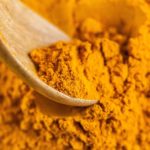By David Blyweiss, M.D., Advanced Natural Wellness
April 10, 2017
- Certain medications could trigger unexpected heart attack
- Tame your pain without risky NSAID drugs
- How safe are antacids and allergy meds?
Your LDL cholesterol is perfect. You exercise and eat well. Your blood pressure is just as happy and laid-back as you are.
WHAM! Suddenly it happens!
Your heart starts beating erratically and you feel disoriented. Maybe you experience a sharp pain in your chest, shoulder or back. You might even have a headache that abruptly seems to explode inside your head and trickle down into your body.
The next thing you know you’re rushed into an emergency room at the nearest hospital.
After hours of testing, a doctor you’ve never met before appears in your draped cubicle and delivers the bad news. It’s your heart….
It’s hard for you to accept the diagnosis. After all, you’re strong, healthy and fit. You felt fine right up until “the moment”.
Open your arteries, improve blood flow for a new health miracle...
Did you know your circulatory system has over 60,000 miles of arteries, veins and other blood vessels, if stretched end to end?
But as you age, your blood vessels undergo changes, which may cause them to stiffen, thicken and get clogged.
GOOD NEWS! Doctors have now identified a “Miracle Molecule” inside your arteries that helps OPEN your arteries and IMPROVE blood flow.
It’s what Dr. Valentin Fuster calls it, "One of the most important discoveries in the history of cardiovascular medicine."To you, that means...
- Healthy blood pressure
- Sharper mind and memory
- Skyrocketing energy and muscular strength
- Increased pleasure and passion in the bedroom
- Improved circulation to every cell and organ in your body
Go here to discover a new natural way to significantly boost the levels of this miracle molecule in YOUR body NOW!
How in the world could this happen to you?
Certain Meds Trigger Unexpected Heart Attacks
If you have aches and pains, it’s easy enough to reach for a pain killer like Aleve (naproxen), Advil (ibuprofen) or Celebrex (celecoxib). These drugs are classified as nonsteroidal anti-inflammatory drugs, or NSAIDs.
Unfortunately, these drugs also come with a very real heart risk. All of them increase your chances of a heart attack or stroke, even if you don’t have heart disease or any risk factors for it. These problems can occur as early as the first weeks of using an NSAID. And the longer you take the drug, the higher the risk.
Even worse, some of them are linked to sudden cardiac arrest – an abrupt loss of heart function. For example, just one month of ibuprofen use can increase your chance of cardiac arrest by over 30%, even if you have no existing heart problems.
You’re much better off seeking natural pain remedies. A warm Epsom Salt bath is great for relieving general aches and pains. So are topical creams that contain at least .75% capsaicin.
For chronic pain associated with arthritis and back problems, natural substances like green-lipped mussel extract (150 mg daily) and curcumin (1000 mg twice a day) can work wonders to relieve pain and improve function.
Are You Suffering From...
- Love handles and a pot belly
- Romance that isn't what it used to
- Forgetfulness and inattention
- Low (or no) strength and endurance
- A sex drive that's shifted into neutral...or worse
If so...you may have Mature Male Burnout. Click here to discover more about this unique condition and what you can do about it.
Acupuncture, massage therapy and gentle exercise also play an important role in pain relief.
How Safe are Antacids and Allergy Meds?
If you chronically take heartburn drugs known as proton pump inhibitors, like Nexium, Prilosec and Prevacid, you boost your risk of heart attack by up to 21%. Once again, this can happen even if you have no prior history of heart disease. And it crosses all age groups.
If you frequently take these types of drugs, I recommend working with your doctor to find a safer remedy. Taking 500 mg of mastic gum twice a day with 75 mg of zinc carnosine and DGL (Deglycyrrhizinated licorice) for three to four weeks can help while you make the transition.
Cold and allergy meds are also bad for your heart. Especially those that contain pseudoephedrine. These include Sudafed, Tylenol Sinus Severe Congestion, Claritin-D and Advil Allergy Sinus.
Now, pseudoephedrine is the stuff that drug dealers use to make methamphetamine. So it’s not surprising that these decongestants raise your heart rate, increase blood pressure and make your heart beat faster.
These events can all trigger irregular heart rhythm or a heart attack in patients with – and without – heart disease.
The fact of the matter is that decongestants don’t treat allergy, flu or cold symptoms. Rather, they just give you a few moments of relief.
You can effectively treat nasal congestion by regularly flushing your sinuses with a saline solution. There’s actually a tool just for this purpose. It’s called a neti pot. Just fill it up with 8 ounces of distilled or sterilized water, ½ teaspoon of sea salt and a pinch of baking soda, then gently flush your nasal passages.
A steamy shower and drinking hot fluids can also help relieve your stuffy nose. And don’t forget the benefits of good, old-fashioned chicken soup.
The ingredients actually reduce the inflammatory process that triggers the release of mucus. When making your soup, use plenty of organic chicken, onions, sweet potatoes, turnips, carrots, celery, parsnips and other veggies for maximum power.
SOURCES:
FDA Drug Safety Communication: FDA strengthens warning that non-aspirin nonsteroidal anti-inflammatory drugs (NSAIDs) can cause heart attacks or strokes. Safety Announcement. U.S. Food and Drug Administration. July 2015
Sondergaard KB, et al. Non-steroidal anti-inflammatory drug use is associated with increased risk of out-of-hospital cardiac arrest: a nationwide case–time–control study.
Eur Heart J Cardiovasc Pharmacother (2017) 3 (2): 100-107.
Shah NH, et al. Proton Pump Inhibitor Usage and the Risk of Myocardial Infarction in the General Population. PLoS One. 2015 Jun 10;10(6):e0124653.
Kaya Z, et al. Adverse Cardiac Effects of Decongestant Agents. Eur J Gen Med 2013; 10 (Suppl 1):32-35
Little P, et al. Effectiveness of steam inhalation and nasal irrigation for chronic or recurrent sinus symptoms in primary care: a pragmatic randomized controlled trial. CMAJ. 2016 Sep 20; 188(13): 940–949.
American College of Chest Physicians. “New Study Supports Chicken Soup As a Cold Remedy.” ScienceDaily. Oct 2000.







